第99章 THE SKETCH BOOK(1)
TRAITS OF INDIAN CHARACTER
by Washington Irving
"I appeal to any white man if ever he entered Logan's cabinhungry, and he gave him not to eat; if ever he came cold and naked,and he clothed him not."SPEECH OF AN INDIAN CHIEF.
THERE is something in the character and habits of the North Americansavage, taken in connection with the scenery over which he isaccustomed to range, its vast lakes, boundless forests, majesticrivers, and trackless plains, that is, to my mind, wonderfullystriking and sublime. He is formed for the wilderness, as the Arabis for the desert. His nature is stern, simple and enduring; fitted tograpple with difficulties, and to support privations. There seemsbut little soil in his heart for the support of the kindly virtues;and yet, if we would but take the trouble to penetrate through thatproud stoicism and habitual taciturnity, which lock up his characterfrom casual observation, we should find him linked to his fellow-manof civilized life by more of those sympathies and affections thanare usually ascribed to him.
It has been the lot of the unfortunate aborigines of America, in theearly periods of colonization, to be doubly wronged by the whitemen. They have been dispossessed of their hereditary possessions bymercenary and frequently wanton warfare: and their characters havebeen traduced by bigoted and interested writers. The colonist oftentreated them like beasts of the forest; and the author hasendeavored to justify him in his outrages. The former found iteasier to exterminate than to civilize; the latter to vilify than todiscriminate. The appellations of savage and pagan were deemedsufficient to sanction the hostilities of both; and thus the poorwanderers of the forest were persecuted and defamed, not becausethey were guilty, but because they were ignorant.
The rights of the savage have seldom been properly appreciated orrespected by the white man. In peace he has too often been the dupe ofartful traffic; in war he has been regarded as a ferocious animal,whose life or death was a question of mere precaution and convenience.
Man is cruelly wasteful of life when his own safety is endangered, andhe is sheltered by impunity; and little mercy is to be expected fromhim, when he feels the sting of the reptile and is conscious of thepower to destroy.
The same prejudices, which were indulged thus early, exist in commoncirculation at the present day. Certain learned societies have, itis true, with laudable diligence, endeavored to investigate and recordthe real characters and manners of the Indian tribes; the Americangovernment, too, has wisely and humanely exerted itself to inculcate afriendly and forbearing spirit towards them, and to protect themfrom fraud and injustice.* The current opinion of the Indiancharacter, however, is too apt to be formed from the miserablehordes which infest the frontiers, and hang on the skirts of thesettlements. These are too commonly composed of degenerate beings,corrupted and enfeebled by the vices of society, without beingbenefited by its civilization. That proud independence, which formedthe main pillar of savage virtue, has been shaken down, and thewhole moral fabric lies in ruins. Their spirits are humiliated anddebased by a sense of inferiority, and their native courage cowedand daunted by the superior knowledge and power of their enlightenedneighbors. Society has advanced upon them like one of thosewithering airs that will sometimes breed desolation over a wholeregion of fertility. It has enervated their strength, multiplied theirdiseases, and superinduced upon their original barbarity the low vicesof artificial life. It has given them a thousand superfluous wants,whilst it has diminished their means of mere existence. It hasdriven before it the animals of the chase, who fly from the sound ofthe axe and the smoke of the settlement, and seek refuge in the depthsof remoter forests and yet untrodden wilds. Thus do we too oftenfind the Indians on our frontiers to be the mere wrecks and remnantsof once powerful tribes, who have lingered in the vicinity of thesettlements, and sunk into precarious and vagabond existence. Poverty,repining and hopeless poverty, a canker of the mind unknown insavage life, corrodes their spirits, and blights every free andnoble quality of their natures. They become drunken, indolent, feeble,thievish, and pusillanimous. They loiter like vagrants about thesettlements, among spacious dwellings replete with elaborate comforts,which only render them sensible of the comparative wretchedness oftheir own condition. Luxury spreads its ample board before their eyes;but they are excluded from the banquet. Plenty revels over the fields;but they are starving in the midst of its abundance: the wholewilderness has blossomed into a garden; but they feel as reptiles thatinfest it.
* The American government has been indefatigable in its exertions toameliorate the situation of the Indians, and to introduce among themthe arts of civilization, and civil and religious knowledge. Toprotect them from the frauds of the white traders, no purchase of landfrom them by individuals is permitted; nor is any person allowed toreceive lands from them as a present, without the express sanctionof government. These precautions are strictly enforced.